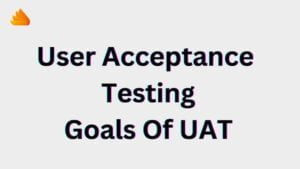Understanding Cucumber Hooks: Enhancing Automated Testing with Effective Event Handling
Introduction
Automated testing has become an integral part of software development, enabling teams to deliver high-quality applications at a rapid pace. Cucumber, a widely used testing framework, offers a powerful toolset for behaviour-driven development (BDD) and acceptance testing.
One of the key features that make Cucumber highly flexible and customizable is its support for listeners. In this article, we will explore the concept of Cucumber listeners and understand how they can enhance the automation testing process by providing effective event-handling capabilities.
What are Cucumber Listeners or Hooks
Cucumber listeners are event handlers that allow developers to tap into various stages of the test execution lifecycle.
These listeners can be utilized to perform additional actions or gather information during specific events, such as before or after scenario execution, before or after feature execution, or even before or after each step.
How Hooks or Listerers Work
Cucumber listeners follow the observer design pattern, where they observe and respond to specific events triggered during test execution. When a particular event occurs, Cucumber invokes the corresponding listener method(s) defined in the test code. By implementing these methods, testers can define custom actions to be performed based on the event being observed.
Commonly Used Cucumber Hooks
Before
This listener method is executed before each scenario, allowing developers to perform setup tasks or initialize test data.
After
This listener method is executed after each scenario, enabling developers to clean up resources, generate reports, or capture screenshots.
BeforeStep
This listener method is invoked before each step within a scenario. It can be utilized to perform pre-step actions or validations.
AfterStep
This listener method is invoked after each step within a scenario. It can be used for post-step actions or verifications.
BeforeAll and AfterAll
These listeners are invoked before and after the execution of all scenarios. They are helpful in performing global setup or teardown operations.
Cucumber hooks Examples
import io.cucumber.java.*;
/**
* You can use hooks for the Different activities as per project requirements
*/
public class CucumberHooks {
@BeforeAll
public void beforeAll() {
System.out.println("I will run before all scenarios");
}
@AfterAll
public void afterAll() {
System.out.println("I will run after all scenarios");
}
@Before
public void before() {
System.out.println("I will run before every scenario");
}
@After
public void after() {
System.out.println("I will run after every scenario");
}
@BeforeStep
public void beforeStep() {
System.out.println("I will run before every scenario step");
}
@AfterStep
public void afterStep() {
System.out.println("I will run after every scenario step");
}
}
Benefits of Using Cucumber Listeners
Test Customization
Listeners provide the flexibility to tailor the testing process according to specific project requirements. By defining custom actions in listener methods, testers can integrate additional functionality seamlessly.
Enhanced Reporting
By leveraging listeners, testers can generate detailed reports that capture critical information during various stages of test execution. This helps in comprehensive test result analysis and issue identification.
Reusability
Listeners can be defined once and reused across multiple scenarios or feature files. This promotes code reusability and reduces duplication efforts.
Debugging and Troubleshooting
With listeners, developers can log events and perform additional actions during specific stages of test execution. This aids in debugging and troubleshooting issues by providing insights into the test flow and state.
Integration with Third-Party Tools
Cucumber listeners can be used to integrate with other tools or frameworks, such as logging frameworks or continuous integration systems, to enhance test automation capabilities.
Conclusion
Cucumber listeners are a valuable component of the Cucumber testing framework, enabling testers to extend and customize their automated testing processes. By leveraging listeners, developers can perform additional actions, capture critical information, and integrate seamlessly with other tools or frameworks. The flexibility and event-handling capabilities offered by Cucumber listeners contribute to improved test automation and assist in delivering high-quality software applications.





Post Comment